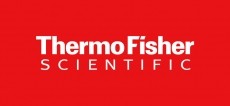Millipore targets arthritis research efficiency
generate arthritis mouse models for screening and evaluating
anti-inflammatory therapeutics.
The new kit, known as the ArthroMAB monoclonal antibody (MAb) cocktail, contains a mix of four different antibodies that target mouse collagen type II and bacterial lipopolysaccharide that induces severe arthritis in mice more quickly than traditional methods. This type of mouse model will help test the many new arthritis drug candidates in development. A report by IMS Health claims the market was as large as $8bn (€5.9bn) in 2005 and has seen 30 per cent growth over the last few years. According to a report published by Arrowhead Publishers, the therapeutic market for rheumatoid arthritis is predicted to grow to $13bn by 2011. The antibody cocktail causes the disease to start within 8 to 10 days following injection of the cocktail and is a close model the pathology of the disease in humans in terms of both histopathology and joint inflammation. This is in stark contrast with the more traditional collagen induced arthritis (CIA) model where the disease does not appear until between day 17 and day 28. "This rapid onset has two distinct advantages, firstly it permits more data to be gathered in a shorter period of time, a very important issue in today's research where time to market is critical," said Steven Edenson, product manager for immunodetection at Millipore. "Secondly, by reducing the duration of the experiment the requirement for active compounds, be they priceless experimental small molecules, valuable protein therapeutics or costly control reagents, is greatly reduced. Conserving these valuable reagents is a huge benefit of ArthroMAB over CIA." Another advantage to rapid disease onset is that it greatly simplifies experimental protocols and reduces the need to make subjective decisions about when to dose an animal that can lead to less robust data being generated. "Nearly 100 per cent of the animals treated with ArthroMAB develop arthritis compared to 75 per cent when using the CIA model and this leads to animal costs being reduced by at least 20 percent because fewer animals are needed to obtain statistically significant data," said Edenson. The ArthroMAB cocktail also works in a wider variety of mice strains than CIA which forces only works in the DBA/1 strain which is expensive and sometimes difficult to obtain. This helps to reduce costs further as the cocktail works in the cheaper and more widely available BALB/c strain. The cocktail also works in a variety of gene knockout mice strains that have been shown to be unresponsive to CIA.









